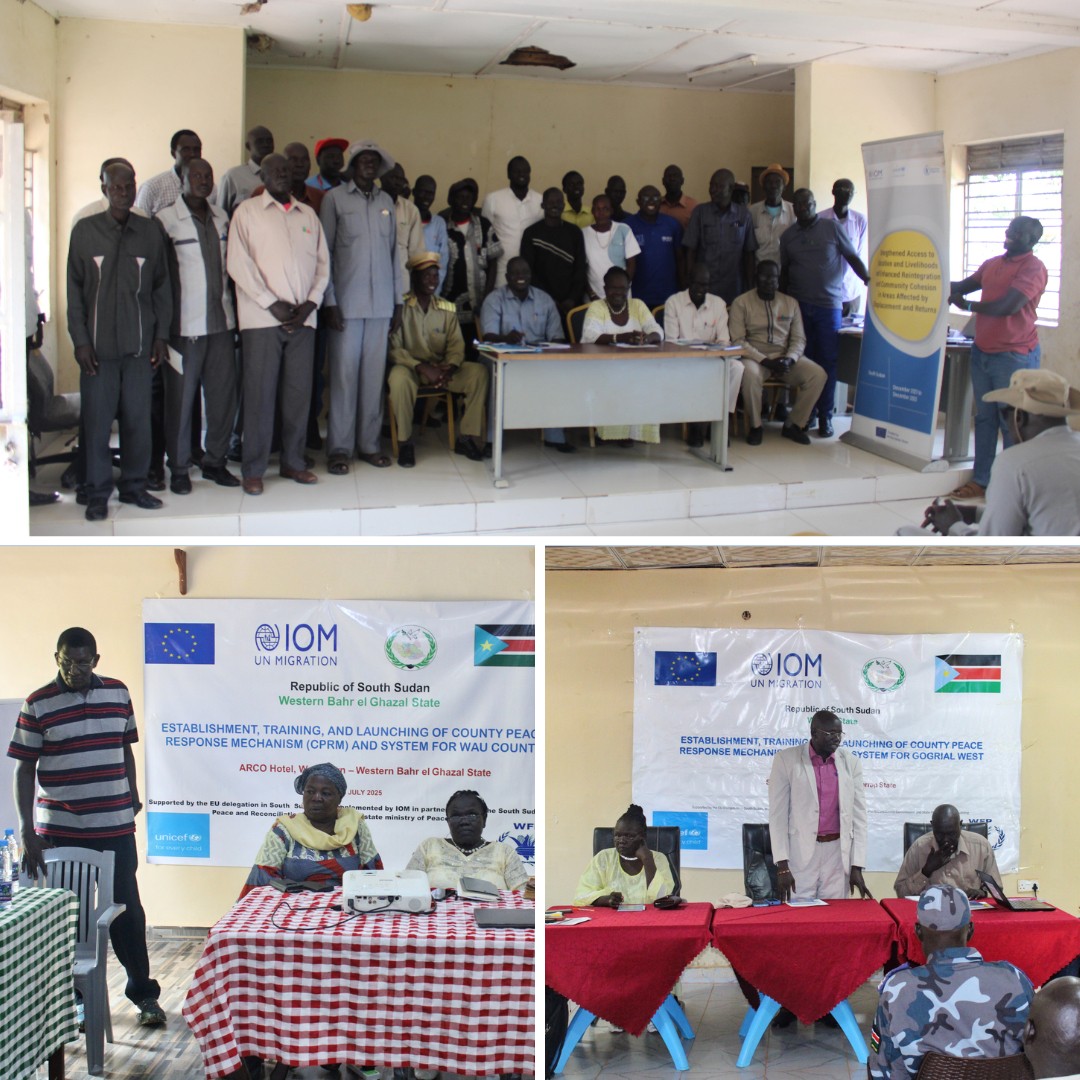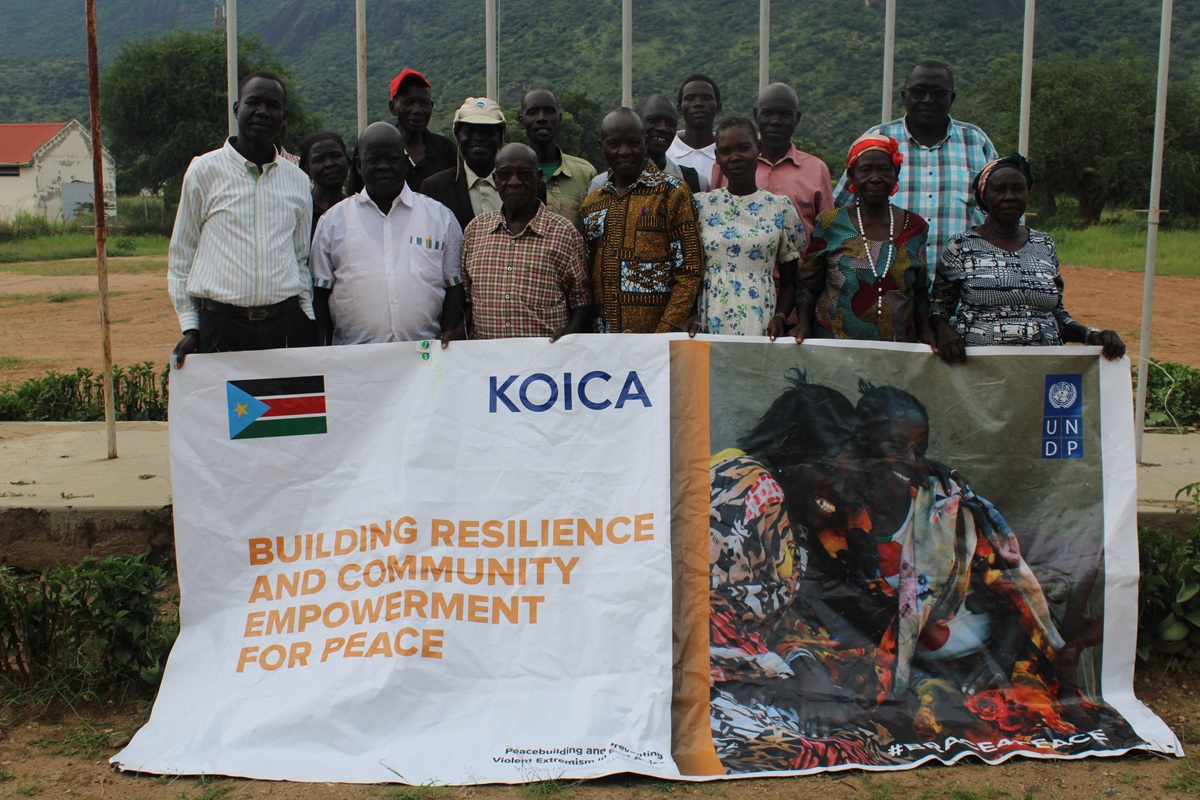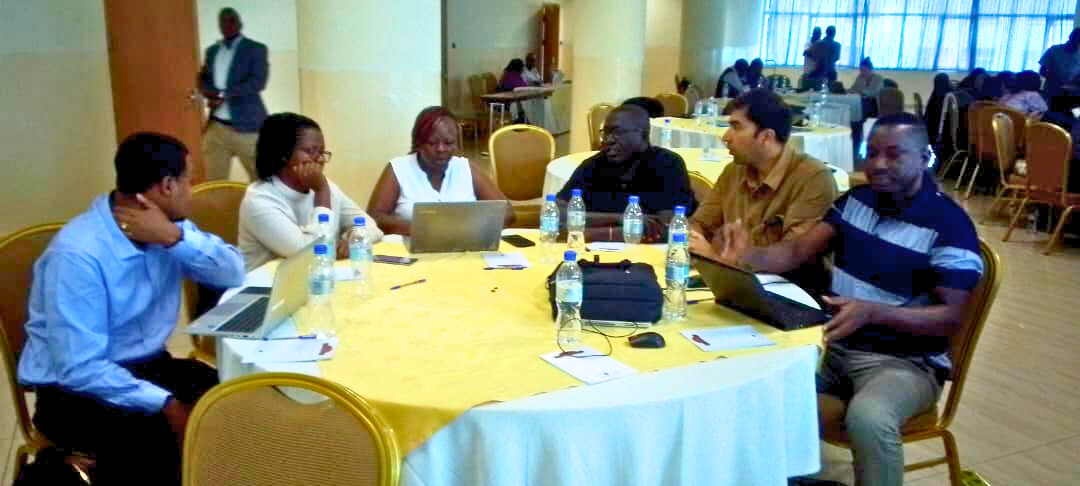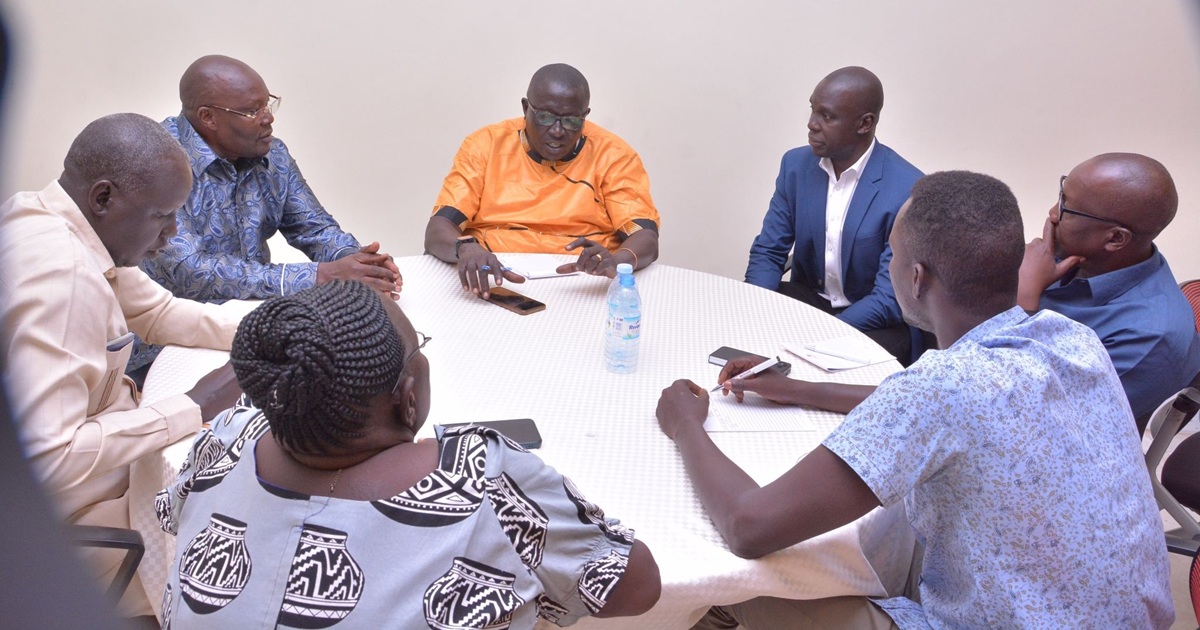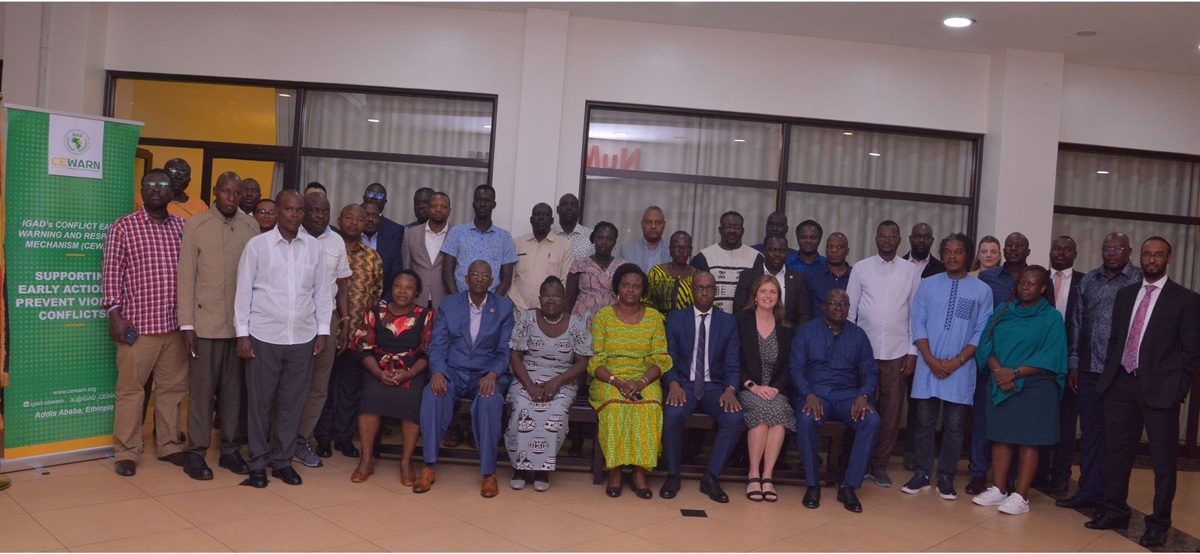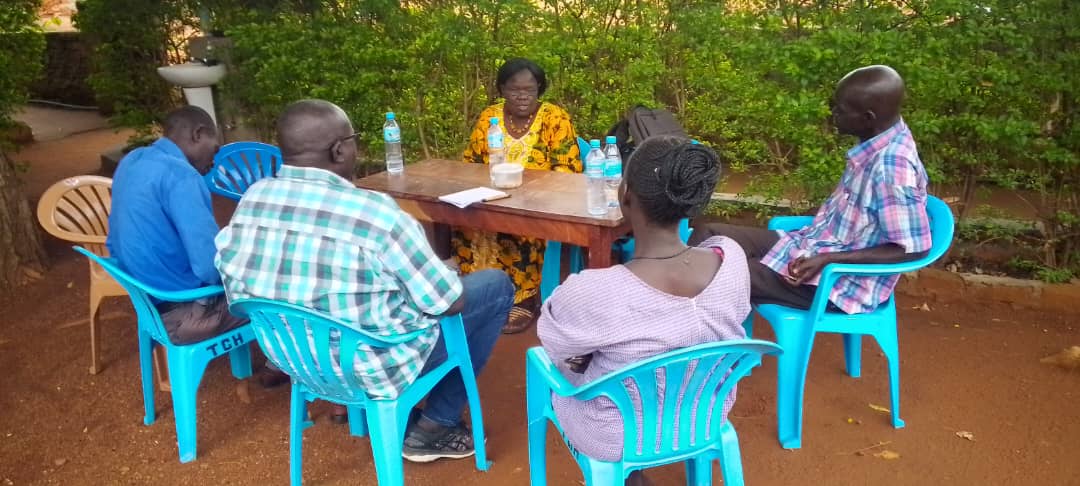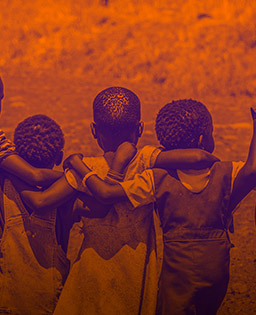SSPRC Engages Stakeholders on Tackling Hate Speech
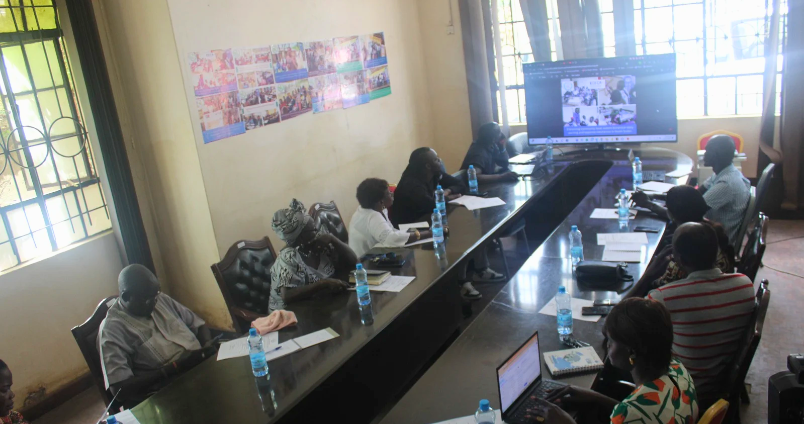
Partners viewing photos of activities conducted by SSPRC during the Conflict Early Warning and Early Response Forum.
The South Sudan Peace and Reconciliation Commission (SSPRC), through its Early Warning and Early Response (EWER) mechanism, convened a monthly discussion focusing on strategies to tackle and mitigate hate speech.
Hate speech remains one of the major challenges facing South Sudan. The situation has worsened in recent weeks, particularly following the court proceedings involving Pout Kang and seven others. Instead of centering on the court case, public conversations have increasingly taken an ethnic dimension, hence the importance of this stakeholder discussion
Through its EWER mechanism, SSPRC monitors, detects, and reports hate speech incidents via County Peace Response Mechanisms (CPRMs) to the Situation Room. From there, alerts are shared with relevant authorities for response. However, significant gaps remain in addressing the root causes and consequences of hate speech
Calls for Education and Awareness
Representing Iam Peace, an organization prioritizing hate speech prevention, Executive Director Lupai Sambro emphasized the need for awareness and education.
“We must first educate ourselves on what constitutes hate speech before developing effective strategies to address it. It is equally important to understand the transmission channels and the words being used,”

Lupai Sampro seated number 2 from right further proposed the formation of a cluster or taskforce dedicated to educating online users on how to identify, tackle, and mitigate hate speech
Strengthening Legal and Institutional Measures
Luate Satimon, Executive Director of Integrity South Sudan, stressed the importance of legal enforcement. “We need to establish whether laws exist that punish hate speech. The problem persists because there are no consequences,” he noted.
Luate added that simply taking down harmful online pages is not enough.
“If individuals are not punished, they will continue opening new pages. We need accountability,”
He also recommended integrating hate speech education into the school curriculum as a long-term solution, equipping future generations with the knowledge to prevent and counter harmful narratives.

